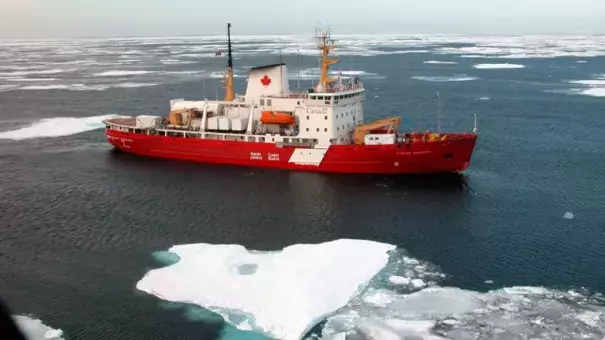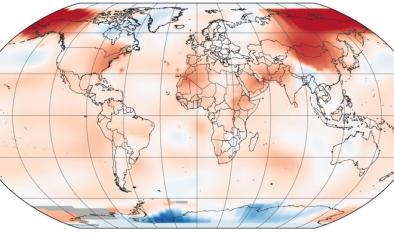Climate change researchers cancel expedition after climate change makes conditions too dangerous

A team of scientists had to abandon an expedition through Hudson Bay because of hazardous ice conditions off the coast of Newfoundland caused by climate change.
About 40 scientists from five Canadian universities were scheduled to use the icebreaker CCGS Amundsen for the first leg of a 133-day expedition across the Arctic. It's part of a $17-million, four-year project led by the University of Manitoba that looks at both the effects of climate change as well as public health in remote communities.
Their trip began May 25 in Quebec City, but due to bad ice conditions off the coast of Newfoundland, the icebreaker was diverted from its course to help ferries and fishing boats navigate the Strait of Belle Isle, said David Barber, a climate change scientist at the University of Manitoba and leader of the Hudson Bay expedition called BaySys.
Thick, dense ice had travelled to the area down from the High Arctic, said Barber, which caused unsuspecting boats to become stuck and even take on water.
"The requirements for search and rescue trumped the requirements for science," said Barber. "The search and rescue calls were coming in quite fast and furious."
...
"This is the first time we've actually seen ice from the High Arctic," said Barber, who has studied the impacts of climate change on sea ice for decades.
What happens in the Arctic doesn't stay there. It comes south."
- David Barber, climate scientist
Typically when people think about climate change they think about thinning ice, but Barber points out the warming action also loosens ice and broken icebergs can travel long distances on ocean currents.
"It's very much a climate-change driven phenomenon," said Barber. "When you reduce the extent of the ice and reduce the thickness of it, it becomes more mobile."
Related Content




